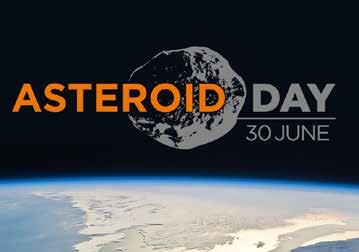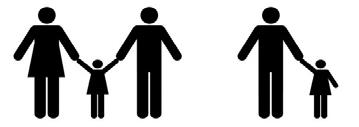
29 minute read
June
INTERNATIONAL DAYS INTERNATIONAL
DAYS JUNE
Advertisement
1st June – Global Day of Parents Parents and parent figures play a critical role in the rearing of children. The Global Day of Parents is to recognise this role and that of the family in nurturing and protecting children, and in enabling an atmosphere of happiness, love and understanding for the full and harmonious development of each child’s personality. Established in 2012, this Day is to appreciate the selfless commitment to children and their lifelong sacrifice towards nurturing this relationship by parents and parent figures.
3rd June – World Bicycle Day World Bicycle Day is to acknowledge the uniqueness, longevity and versatility of the bicycle, and its use as a simple, affordable, reliable, clean and environmentally fit sustainable means of transportation, fostering environmental stewardship and health. The Day encourages the use of the bicycle as a means of fostering sustainable development, strengthening education, including physical education, for children and young people, promoting health, preventing disease, promoting tolerance, mutual understanding and respect and facilitating social inclusion and a culture of peace. According to the World Health Organization (WHO), safe infrastructure for walking and cycling is a pathway for achieving greater health equity as these activities reduce the risk of heart disease, stroke, certain cancers, diabetes, and even death. Accordingly, improved active transport is not only healthy, it is also equitable and cost-effective. Additionally the bicycle: • is a simple, affordable, reliable, clean and environmentally fit sustainable means of transportation; • ican serve as a tool for development and as a means not just of transportation but also of access to education, health care and sport; • user synergy fosters creativity and social engagement and gives the user an immediate awareness of the local environment; and
• is a symbol of sustainable transportation and conveys a positive message to foster sustainable consumption and production, and has a positive impact on climate.
4th June – International Day of Innocent Children Victims of Aggression The Graça Machel report drew global attention to the devastating impact of armed conflict on children and led to the adoption of the Convention on the Rights of the Child, its Optional Protocol and the mandate of the Special Representative of the Secretary-General for Children and Armed Conflict. Violations perpetrated against

children have, in many conflict zones, increased. International Day of Innocent Children Victims of Aggression is to protect the 250 million children living in conflict regions from targeting by violent extremists, to promote international humanitarian and human rights law, and to ensure accountability for violations of the rights of children. The 2030 Agenda for Sustainable Development provides a masterplan to secure a better future for children, and includes a specific target (16.2) to end all forms of violence against children, as well as ending the abuse, neglect and exploitation of children in several other violence-related targets.
5th June – International Day for the Fight against Illegal, Unreported and Unregulated Fishing Illegal, unreported and unregulated (IUU) fishing occurs on the high seas and in areas within national jurisdiction. It concerns all aspects and stages of the capture and utilisation of fish, and it is sometimes associated with organised crime. IUU fishing undermines national and regional efforts to conserve and manage fish stocks and, as a consequence, inhibits progress towards achieving the goals of longterm sustainability and responsibility. International Day for the Fight against Illegal, Unreported and Unregulated Fishing marks the official entry into force of the Port State Measures Agreement and is to regulate harvesting and end overfishing, illegal, unreported and unregulated fishing and destructive fishing practices. The voluntary FAO Code of Conduct for Responsible Fisheries sets out the means for effective conservation, management and development of living aquatic resources, with due respect for the ecosystem and biodiversity. Next year, 2022, is the International Year of Artisanal Fisheries and Aquaculture, with the focus on smallscale fishermen and women who comprise 90% of the world’s fisheries work force. 5th June – World Environment Day World Environment Day was established in 1974 to lift awareness and action on the environment, addressing issues such as marine pollution, excessive land clearing, global warming, sustainable consumption and wildlife crime. Celebrated in more than 143 countries, the theme for 2021 is Beat Plastic Pollution. We produce about 300 million tonnes of plastic waste each year. Of the more than 8.3 billion tonnes of plastic produced since the early 1950s, 60% has ended in either a landfill or the natural environment. More than 99% of plastics are produced from chemicals derived from oil, natural gas and coal — all of which are dirty, nonrenewable resources. If current trends continue, by 2050 the plastic industry could account for 20% of the world’s total oil consumption. Single-use plastic products are everywhere and have become integral to the daily lives of those who live in consumerbased societies. A staggering 8 million tonnes of plastic ends up in the world’s oceans every year with obvious detrimental effects on this vast ecosystem.
6th June – Russian Language Day Established by UNESCO in 2010, Russian Language Day marks the birthday of Aleksandr Pushkin, the founder of modern Russian literary language. Russian, an East Slavic language, is the official language in Russia, Belarus, Kazakhstan and Kyrgyzstan, and is spoken throughout the Caucasus, Central Asia and the Baltic states. The most geographically widespread language in Eurasia,
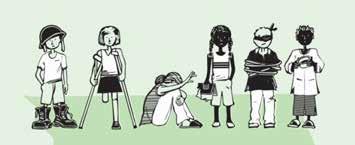


INTERNATIONAL DAYS
258 million people are estimated to speak Russian, making it the seventh-most spoken language in the world by number of native speakers. It is one of the six official languages of the United Nations.
7th June – World Food Safety Day As outlined by the World Health Organization (WHO), access to sufficient amounts of safe and nutritious food is key to sustaining life and promoting good health. Unsafe food containing harmful bacteria, viruses, parasites or chemical substances, causes more than 200 diseases, ranging from diarrhoea to cancers. An estimated 600 million – almost 1 in 10 people in the world – fall ill after eating contaminated food and 420,000 die every year (120,000 of these being children under five years of age). US$110 billion is lost each year in productivity and medical expenses resulting from unsafe food in low- and middle-income countries. Unsafe food creates a vicious cycle of disease and malnutrition, particularly affecting infants, young children, the elderly and the sick. Foodborne diseases impede socioeconomic development by straining health care systems, and harming national economies, tourism and trade. With food supply chains crossing multiple national borders, collaboration between governments, producers and consumers helps ensure food safety. First observed in 2019, World Food Safety Day is thus to ensure that the food we consume is safe and will not cause ill-health, to mainstream food safety in the public agenda and to reduce the burden of foodborne diseases globally. 8th June – World Oceans Day World Oceans Day began in 2009 and is to celebrate the role of the oceans in our everyday life and inspire action to protect the ocean and sustainably use marine resources. The 2021 celebration of this day is significant as it is the first year of the Decade of Ocean Science for Sustainable Development. Proclaimed by the United Nations, 2021-2030 is the decade to reverse the cycle of decline in ocean health and gather ocean stakeholders worldwide behind a common framework to transform ocean science into innovative solutions and sustain ocean science institutions and infrastructure in times of crisis. As outlined in the Implementation Plan for this decade, the ocean is under threat. Land-based and sea-based activities affect over 40% of the ocean’s surface. Deoxygenation is creating ocean dead zones and harmful algal blooms are generating significant risks for human health and economies. Live coral cover, which harbours significant biodiversity and provides coastal protection and livelihoods, has nearly halved in the last 150 years. This decade thus involves a large-scale campaign of transformational ocean science to empower and engage stakeholders across disciplines, geographies and generations and to meet the following challenges: • understand and map land and sea-based sources of pollutants and their potential impacts on human health and ocean ecosystems, and develop solutions to remove or mitigate them; • understand the effects of multiple stressors on ocean ecosystems, and develop solutions to monitor, protect, manage and restore ecosystems and their biodiversity under changing environmental, social and climate conditions; • generate knowledge, support innovation and develop solutions to optimise the role of the ocean in sustainably feeding the world’s population under changing environmental, social and climate conditions; • generate knowledge, support innovation and develop solutions for equitable and sustainable development of the ocean economy under changing environmental, social and climate conditions;
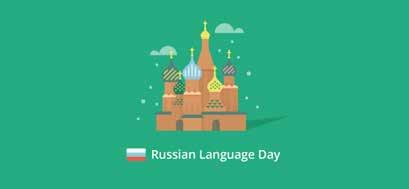
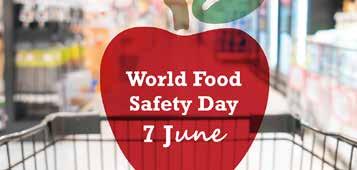
• enhance understanding of the ocean-climate nexus and generate knowledge and solutions to mitigate, adapt and build resilience to the effects of climate change across all geographies and at all scales, and to improve services including predictions, for the ocean, climate and weather; • enhance multi-hazard early warning services for all geophysical, ecological, biological, weather, climate and anthropogenic related ocean and coastal hazards, and mainstream community preparedness and resilience; • ensure a sustainable ocean observing system across all ocean basins that delivers accessible, timely and actionable data and information to all users; • through multi-stakeholder collaboration, develop a comprehensive digital representation of the ocean, including a dynamic ocean map, which provides free and open access for exploring, discovering ad visualising past, current and future ocean conditions in a manger relevant to diverse stakeholders; • ensure comprehensive capacity development and equitable access to data, information, knowledge and technology access across all aspects of ocean science and for all stakeholders; • ensure that the multiple values and services of the ocean for human wellbeing, culture and sustainable development are widely understood, and identify and overcome barriers to behaviour change required for a step change in humanity’s relationship with the ocean.
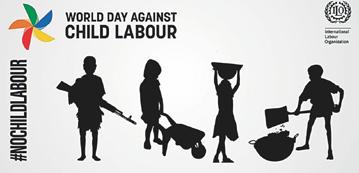
12th June – World Day against Child Labour
Children are classified as child labourers when they are either too young to work, or are involved in hazardous activities that may compromise their physical, mental, social or educational development. In the least developed countries, slightly more than one in four children (ages 5 to 17) are engaged in labour that is considered detrimental to their health and development. Africa (72 million child labourers) and the Asia and the Pacific regions (62 million) account for 9/10 children in child labour worldwide. The remaining child labour population is divided among the Americas (11 million), Europe and Central Asia (6 million), and the Arab States (1 million). Child labour is concentrated primarily in agriculture (71%; fishing, forestry, livestock herding, aquaculture), services (17%) and the industrial sector (12%, including mining). World Day against Child Labour is to focus attention on the global extent of child labour and the action and efforts needed to eliminate it.
13th June – International Albinism Awareness Day Albinism is a rare, genetic difference which results in a lack of melanin in the hair, skin and eyes, causing vulnerability to the sun and bright light. The incidence varies from 1 in 1,000 on the African continent to 1 in 20,000 in Europe and North America. Persons with albinism are highly vulnerable to skin cancer — with some dying in their 30s because of inadequate access to life-saving measures such as health checks and sun-protective measures. Persons with albinism also face discrimination due to their skin colour, as well as their disability. Because of erroneous beliefs, myths and superstition in some countries, they are also at risk of attacks, persecution, injury and death. There have been hundreds of reports of attacks and killings of persons with albinism in 28 countries in Sub-Saharan Africa in the past decade. In other regions, discrimination may consist of name-calling, persistent teasing and bullying, as well as abandonment and rejection by families. International Albinism Awareness

INTERNATIONAL DAYS
Day is thus to celebrate the achievements and successes of persons with albinism worldwide, and to enable them to be free from stigma, discrimination, fear and violence.
14th June – World Blood Donor Day World Blood Donor Day was established in 2005 and designated as a special day to thank blood donors, to encourage more people to give blood freely and to raise awareness about the global need for safe blood and blood products. An important resource for planned treatments and urgent interventions, blood helps people live longer and with a higher quality of life. It is vital for treating the wounded during emergencies (natural disasters, accidents, armed conflicts, etc.) and has an essential, life-saving role in maternal and perinatal care. Key to an effective health system in any region is national coordination of blood services that give timely access to safe blood and blood products in sufficient quantity, as well as a blood transfusion service based on voluntary non-remunerated blood donations.
In Australia, blood (as well as tissue, organs, breast milk, and other life-saving biological products) can be donated to Australian Red Cross Lifeblood. This is an Australia-wide network of over 100 donor centres receiving 1.5 million donations and undertaking 103,000 deliveries each year. To learn more about how you can help save lives through regular donations go to https://www.donateblood.com.au/. 15th June – World Elder Abuse Awareness Day World Elder Abuse Awareness Day (WEAAD) is to oppose abuse and suffering inflicted to some of our older generations. Governments, civil society and businesses participate through prevention strategies and policies, and by enforcing laws to address all aspects of elder abuse, and by enabling the greatest possible contribution of our elders to our world. Elder abuse is defined by the United Nations as a single, or repeated act, or lack of appropriate action, occurring within any relationship where there is an expectation of trust which causes harm or distress to an older person. A global social issue affecting the health and human rights of millions in developing and developed countries, elder abuse is typically hidden and under-reported globally. Though known prevalence rates range from 1% to 10%, the real extent of elder mistreatment is unknown. Primary health care and social service sectors need to be resourced appropriately to identify and deal with elder abuse, so that it ceases to be under-diagnosed and overlooked.
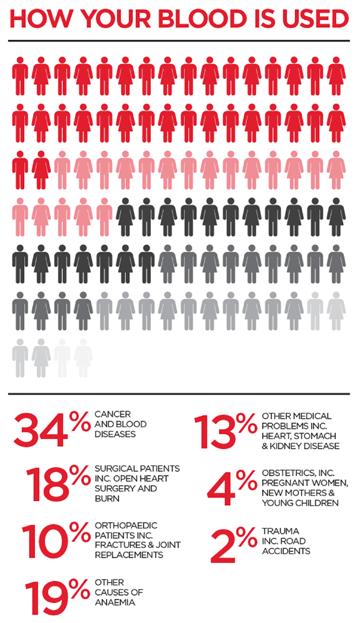

15th June – World Youth Skills Day World Youth Skills Day is for people aged 15 to 24 years, as well as technical and vocational education and training (TVET) institutions, and public and private sector stakeholders, to acknowledge and celebrate the importance of equipping young people with skills for employment, decent work and entrepreneurship. Global Employment Trends for Youth 2020: Technology and the future of jobs shows an upward trend in the number of youth not in employment, education or training (NEET). For example, the NEET number rose from 259 to 267 million from 2016 to 2019, and is projected to rise to 273 million in 2021. Sustainable Development Goal 4 is to ensure inclusive and equitable quality education and promote lifelong learning opportunities for all. Key tasks to achieve SDG 4 include: • access to affordable quality TVET; • acquisition of technical and vocational skills for employment, decent work and entrepreneurship; • elimination of gender disparity; and • access for the vulnerable.
16th June – International Day of Family Remittances
A remittance is a transfer of money, often by a foreign worker to an individual in their home country. Money sent home by migrants is one of the largest financial inflows to developing countries, especially with regard to labour-exporting countries. According to the World Bank, for example, in 2018, overall global remittance was US$689 billion, including US$528 billion to developing countries. Remittances help families afford food, healthcare, and basic needs. International Day of Family Remittances (IDFR) is to recognise the contribution of over 200 million migrants to improve the lives of their 800 million family members back home. Half of these flows go to rural areas, where poverty and hunger are concentrated, and where remittances count the most. The Day is also for governments, the private sector and civil society to maximize the impact of remittances through individual and collective actions. A key initiative is the Global Compact for Safe, Orderly and Regular Migration (Objective 20) for the reduction of remittance transfer costs, and greater financial inclusion through remittances.
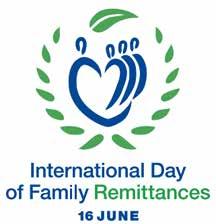
17th June – Desertification and Drought Day Desertification and Drought Day (previously known as World Day to Combat Desertification and Drought) is to combat desertification and to achieve land degradation neutrality through problem-solving, strong community involvement and cooperation. The 2030 Agenda for Sustainable Development includes the intent to protect the planet from degradation, including through sustainable consumption and production, sustainably managing its natural resources and taking urgent action on climate change, so that it can support the needs of the present and future generations. Goal 15 states the resolve to halt and reverse land degradation. Prevent desertification by: • creating a “culture of prevention” – a change in governments’ and peoples’ attitudes through improved incentives; • integrating land and water management by spreading the pressures of human activities; • protecting vegetative cover to protect soil from wind and water erosion;
• more tightly integrating pastoral and cropping land use for a more efficient recycling of nutrients within the agricultural system;
INTERNATIONAL DAYS
• using locally suitable technology combining traditional technology with selective transfer of locally acceptable technology; • giving institutional capacity, access to markets and financial capital for local community implementation, drawing on cultural history and local knowledge and experience, reinforced by science; • turning to alternative livelihoods that do not depend on traditional land uses, are less demanding on local land and natural resource use; and
• creating economic opportunities in drylands, urban centres and areas outside drylands.
18th June – Sustainable Gastronomy Day Gastronomy — the art of food — refers to local food and cuisine. Sustainability means not being wasteful of natural resources (with agriculture, fishing and food preparation) and continuing into the future without being detrimental to our environment or health. According to the Food and Agriculture Organization of the United Nations (FAO), sustainable gastronomy is thus cuisine that takes into account where ingredients are from, how food is grown/sourced and how food gets to our markets and our plates. Sustainable Gastronomy Day is to celebrate seasonal ingredients and producers, preserve wildlife as well as our culinary traditions, and raise awareness of such global sustainable development measures as:
• designating Creative Cities of Gastronomy (now 36 cities) within the UNESCO Creative
Cities Network; • promoting clean energy for local restaurants (use gas and electricity instead of coal, use natural gas rather than carbon); • showing sustainable gastronomy through TV and food cultural exhibitions for the food industry and farmers; • promoting green culture diets, and including sustainability in dietary guidelines; and • Crop of the Month to promote the diversification of crops in favour of underutilised traditional crops, applying sustainable food production and natural resource management practices.


19th June – International Day for the Elimination of Sexual Violence in Conflict
Conflict-related sexual violence refers to rape, sexual slavery, forced prostitution, forced pregnancy, forced abortion, enforced sterilization, forced marriage and any other form of sexual violence of comparable gravity perpetrated against women, men, girls or boys that is directly or indirectly linked to a conflict. The term also encompasses trafficking in persons when committed in situations of conflict for the purpose of sexual violence or exploitation. It is under-reported. For example, for each conflictrelated rape, 10 to 20 cases go undocumented. International Day for the Elimination of Sexual Violence in Conflict is to raise awareness of the need to put an end to conflict-related sexual violence, to honour the victims and survivors of sexual violence around the world and to pay tribute to all those who have courageously devoted their lives to and lost their lives in standing up for the eradication of these crimes. The date commemorates the adoption of Security Council resolution 1820 (2008) condemning sexual violence as a tactic of war and an impediment to peacebuilding.

20th June – World Refugee Day World Refugee Day is to acknowledge the strength and courage of people who have been forced to flee their home country to escape conflict or persecution, to build empathy and understanding for their plight and to recognise their resilience in rebuilding their lives. Established in 2001, the Day marks the anniversary of the United Nations 1951 Refugee Convention which, together with the 1967 Protocol relating to the Status of Refugees and the Office of the United Nations High Commissioner for Refugees (UNHCR), provides for international protection for refugees who do not have the protection of their own governments. At least 79.5 million people around the world have been forced to flee their homes. Among them are nearly 26 million refugees, around half of whom are under the age of 18.
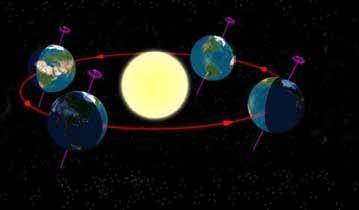
21st June – International Day of the Celebration of the Solstice
The word solstice is derived from the Latin sol (sun) and sistere (to stand still). As seen from Earth, the Sun’s daily path appears to stand still at a northern or southern limit before reversing direction when the Sun reaches its most northerly or southerly day-arc relative to the equator. Two solstices occur annually. One is around 21st June and is referred to as the Winter Solstice (first day of winter; shortest day of the year) in the southern hemisphere and the Summer Solstice (first day of summer; longest day of the year) in the northern hemisphere. The other is 21st December – the Summer Solstice and the Winter Solstice respectively for the southern and northern hemispheres. The solstices, together with the equinoxes, are connected with seasons, harvests and livelihood, and are thus celebrated in various cultures. International Day of the Celebration of the Solstice is thus to acknowledge that these celebrations are an embodiment of the unity of the cultural heritage and centuries-long traditions, and play a role in strengthening the ties among peoples on the basis of mutual respect and the ideals of peace and good-neighbourliness.
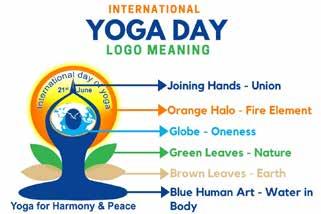
21st June –International Day of Yoga Derived from Sanskrit, the word ‘yoga’ means to join or to unite and refers to an ancient physical, mental and spiritual practice towards the union of body and consciousness. International Day of Yoga was founded by the United Nations in 2014, to raise awareness of the benefits of practising yoga. As noted by the current Prime Minister of India, Narendra Modi, yoga is an invaluable gift from our ancient tradition … it is a way to discover the sense of oneness with yourself, the world and the nature. The World Health Organization (WHO) suggests using this Day also to reduce physical inactivity, which is among the top ten leading causes of death worldwide, and a key risk factor for non-communicable diseases, such as cardiovascular diseases, cancer and diabetes.

21st June –World Music Day World Music Day, also known as Make Music Day and Fête de la Musique, was launched in France in 1982. Designed as a free celebration of music around the world, it encourages all to ‘make their own music’ to promote peace and spread goodwill through music; and is celebrated in more than 1,000 cities in 130 countries across the world. “Music is a language that doesn’t speak in particular words. It speaks in emotions, and if it’s in the bones it’s in the bones.” – Keith Richards, guitarist, The Rolling Stones
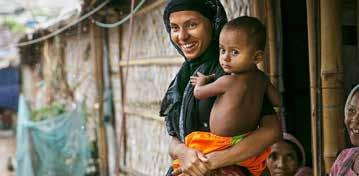
23rd June – International Widows Day Of the estimated 258 million widows globally, near one in ten live in extreme poverty and many face the additional problems of violence, ill-health and conflict-related situations. Established in 2011, International Widows Day is to listen to the voices and experiences of widows and to achieve full rights and recognition for widows. Governments are to uphold international law, including the Convention on the Elimination of All Forms of Discrimination against Women and the Convention on the Rights of the Child. Women need additionally to be educated and supported in access to: • a fair share of their inheritance, land and productive resources; • pensions and social protections that are not based on marital status alone; • decent work and equal pay; • education and training opportunities; • empowerment measures for widows to support themselves and their families (and addressing social stigmas that create exclusion, and discriminatory or harmful practices); and • peacebuilding and reconciliation processes to ensure that they contribute to sustainable peace and security.
23rd June – United Nations Public Service Day Public service refers to the supplying of a commodity (e.g., water, electricity, gas) or service (e.g., welfare, transportation) to any or all members of a community, in the public interest and (usually) under government employment. Public Service Day is to celebrate the value and virtue of public service to the community, highlight the contribution of public service in the development process, recognise the work of public servants, and encourage the pursuit of careers in the public sector. Each year also, the United Nations (UN) recognises the contributions of public institutions that lead to a more effective and responsive public administration in countries worldwide in support of the 2030 Agenda for Sustainable Development through the UN Public Service Awards (UNPSA). Nominations for 2021 are now closed but prepare for 2022 - nominations close November 2021.
25th June – Day of the Seafarer Day of the Seafarer is to recognise the contribution made by 1.5 million seafarers to international trade and the world economy, often at great personal


cost to themselves and their families. Ships carry more than 90% of world trade safely, efficiently and with minimal impact on the environment. Issues facing the modern-day seafarer include piracy, fair treatment of seafarers at ports, and the provision of appropriate facilities and comforts while seafarers are at sea.
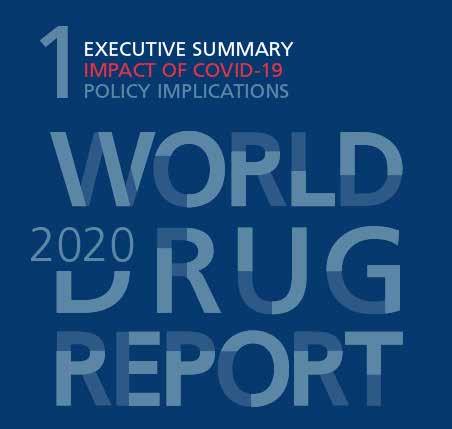
26th June – International Day against Drug Abuse and Illicit Trafficking The United Nations Office on Drugs and Crime (UNODC) counters illegal drugs, organised crime, corruption and terrorism globally. According to the World Drug Report, a global overview of the supply and demand of opiates, cocaine, cannabis, amphetamine-type stimulants and new psychoactive substances:
• drug use is on the rise, with an estimated 269 million users in 2018 (5.3 per cent of the global population); • urbanisation is a driving factor in current and future drug markets; • increasing wealth is linked to rising drug use, but the poorest suffer the largest burden of disorders; • new potentially harmful opioids are on the increase, as is the non-medical use of pharmaceutical drugs; • synthetic drugs are replacing opiates in
Central Asia and the Russian Federation and the methamphetamine market is growing in
Afghanistan and Iraq; • cannabis use is on the rise in most jurisdictions where non-medical use has been legalised; • poorer people face a greater risk of drug use disorders;
• the most used drug is cannabis, with an estimated 192 million people using this drug in 2018; • opioids were used by 58 million people in 2018 and accounted for 66% of the estimated 167,000 deaths related to drug use disorders in 2017 and 50% of the 42 millions years (or 21 million years) lost due to disability or early death, attributed to drug use; • more than 11 million people inject drugs, with 1.4 million living with HIV, 5.5 million with hepatitis C and 1.2 million with both hepatitis C and HIV; and
• heroin, cocaine and methamphetamine traffickers have varied routes and continue to develop new trading patterns. International Day against Drug Abuse and Illicit Trafficking is to strengthen action and cooperation to free the world from drug abuse and to raise awareness of the major problem that illicit drugs represent to society.
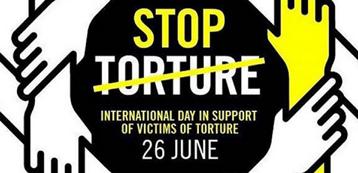
26th June – United Nations International Day in Support of Victims of Torture
Torture and other forms of cruel, degrading and inhuman treatment seek to annihilate personality and deny the inherent dignity of a human being. Though prohibited under international law and totally unjustified, torture persists in all regions of the world. Its pervasive consequences go beyond
INTERNATIONAL DAYS
vile acts on an individual and can be transmitted through generations, leading to cycles of violence. The systematic or widespread practice of torture constitutes a crime against humanity. International Day in Support of Victims of Torture is to eradicate torture and for the effective functioning of the Convention against Torture and Other Cruel, Inhuman or Degrading Treatment or Punishment. Donate to the UN Voluntary Fund for Victims of Torture administered by the UN Human Rights Office in Geneva, a unique victim-focused mechanism that channels funding for the assistance to victims of torture and their families.
The term ‘torture’ means any act by which severe pain or suffering, whether physical or mental, is intentionally inflicted on a person for such purposes as obtaining from him or a third person information or a confession, punishing her for an act she or a third person has committed or is suspected of having committed, or intimidating or coercing them or a third person, or for any reason based on discrimination of any kind, when such pain or suffering is inflicted by or at the instigation of or with the consent or acquiescence of a public official or other person acting in an official capacity. It does not include pain or suffering arising only from, inherent in or incidental to lawful sanctions.” — Convention against Torture and other Cruel, Inhuman or Degrading Treatment or Punishment (1984, art. 1, para.1). 27th June – Micro-, Small and Medium-sized Enterprises Day According the International Council for Small Business (ICSB), formal and informal Micro-, Small and Medium-sized Enterprises (MSMEs) make up over 90% of all firms and, on average, account for 70% of total employment and 50% of GDP. Micro-, Small- and Medium-sized Enterprises Day is thus to raise public awareness of their contribution to sustainable development and the global economy. With 600 million jobs needed by 2030 to absorb the growing global workforce, MSME development is a high priority for many governments around the world. Increasing annual investments in MSMEs by $1 trillion would yield disproportionate dividends in terms of progress towards the Sustainable Development Goals.
29th June – International Day of the Tropics The Earth’s tropics lie roughly in the middle of the globe between the latitude lines of the Tropic of Cancer and the Tropic of Capricorn; and include the Equator and parts of North America, South America, Africa, Asia and Australia. Tropical locations are typically warm, experience little
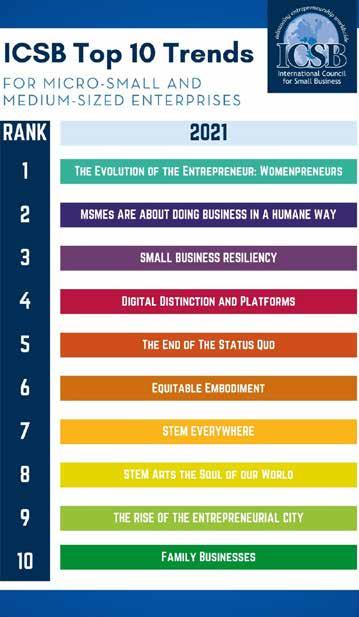

seasonal change in day-to-day temperature and have high rainfalls, the seasonality of the latter increasing with distance from the equator. The International Day of the Tropics is to celebrate the diversity of the tropics and to address challenges in these regions that include population growth, with the region hosting most of the world’s people and two-thirds of its children by 2050, and undernourishment and slum conditions, both higher in the Tropics than in the rest of the world.

30th June – International Day of Parliamentarism
Parliament is a 14th century English term derived from Anglo-Norman and coming from the 11th century Old French parlement, from parler, meaning “to talk”. In modern politics and history, a parliament is a legislative body of government (similar to a senate, synod or congress) commonly used in countries that are current or former monarchies. A cornerstone of democracy, parliaments represent the voice of the people, pass laws, allocate funds to implement laws and policies, and hold governments to account. Working with the Inter-Parliamentary Union (IPU) — the Day recognising the date of the IPU’s establishment in 1889 — parliaments also link international and national agendas, ensuring that governments implement international treaties and agreements that they sign up to. In countries emerging from conflict, parliaments can foster a peaceful transition to a functioning democracy by healing divisions in society through dialogue and cooperation. International Day of Parliamentarism is to recognise the role of parliaments in national plans and strategies and in ensuring greater transparency and accountability at national and global levels, and towards achievement of Goal 16 of the Sustainable Development Goals with peaceful and inclusive societies for sustainable development, access to justice for all, and building effective, accountable institutions at all levels.
30th June – International Asteroid Day An asteroid is a body of rock that orbits the sun. Large numbers of asteroids are found between the orbits of Mars and Jupiter. International Asteroid Day, founded in 2016, is to observe each year at the international level the anniversary of the Tunguska impact over Siberia, Russian Federation on 30th June 1908 and to raise awareness about the asteroid impact hazard. Witnesses reported seeing a bluish light moving across the sky, followed by the loud blast from the Tunguska asteroid in the atmosphere (the asteroid never striking earth) and the flattening of 80 million trees over 2,150 square kilometres of forest. According to NASA’s Centre for NearEarth Objects (NEOs), there are more than 16,000 near earth asteroids. The International Asteroid Warning Network (IAWN) uses welldefined communication plans and protocols to assist in the analysis of possible consequences of an asteroid impact and to support the planning of mitigation responses. The Space Mission Planning Advisory Group (SMPAG) is an interspace agency forum that identifies technologies needed for near-Earth Object deflection, and aims to build consensus on recommendations for planetary defence measures.
